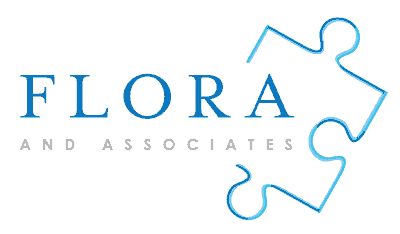From Surviving to Thriving: Steps to Heal Emotional Wounds
Introduction
Emotional wounds can come from a variety of life experiences, including childhood trauma, betrayal, loss, or significant life transitions. These wounds may not be visible, but they often shape how we see ourselves, relate to others, and move through the world.
So how do we move from simply getting by to truly living and thriving?
In this blog, we will explore steps to recognize emotional pain, begin the healing process, and rebuild a sense of safety and connection. If you have ever felt stuck in survival mode, know that healing is possible, and therapy can offer the tools and support you need to move forward.
Did you know that unhealed emotional wounds can influence not only your mental health but also physical wellness, relationships, and self-worth? Understanding these impacts is the first step toward meaningful, lasting change.
1. Recognize the Impact of Emotional Wounds
Healing begins with acknowledgment. Emotional wounds may stem from difficult situations such as:
- Childhood neglect or emotional invalidation
- Relationship betrayal or abandonment
- Loss of a loved one or unresolved grief
- Chronic stress, bullying, or life instability
- Traumatic experiences, including abuse or violence
These experiences can lead to anxiety, depression, low self-esteem, and difficulties with trust or connection. Recognizing the emotional pain behind certain behaviors or thought patterns allows for deeper healing to begin.
Unprocessed trauma can also resurface during high-stress events or life transitions. By becoming aware of how past pain influences current choices, individuals can begin to untangle emotional patterns that no longer serve them.
2. Understand That Survival Strategies Can Be Relearned
When we are hurt, we naturally develop coping strategies to protect ourselves. These may include:
- Withdrawing emotionally or physically
- Overcompensating to please others
- Avoiding vulnerability or intimacy
- Feeling angry, numb, or detached
- Struggling with self-criticism or guilt
While these responses may have served a purpose in the past, they can become barriers to connection and growth in the present. Therapy helps you explore these patterns with compassion and identify healthier ways to meet your emotional needs.
In many cases, these learned behaviors are rooted in fear or lack of safety. With support, you can begin to rewrite those patterns and create new ways of responding that honor your emotional truth while building connection and trust.
3. Create Safety Through Supportive Relationships
Healing is difficult in isolation. Safe, supportive relationships are essential for recovery. This includes:
- Trusted therapists who guide the process with empathy and professionalism
- Supportive family or friends who listen without judgment
- Peer groups or communities who share similar experiences
- Structured therapy approaches such as cognitive behavioral therapy to reframe negative beliefs
At Flora & Associates, our licensed therapists and marriage and family therapists offer individual therapy, family support, and couples sessions to help clients rebuild safety in their emotional lives.
Creating a sense of emotional safety means knowing you are accepted and valued, even in your most vulnerable moments. That foundation is what allows meaningful transformation to occur.
4. Begin the Work of Emotional Processing
Once a safe space is created, therapy helps clients explore, feel, and release what has been held inside. This might include:
- Naming emotions that were once avoided or dismissed
- Reprocessing painful memories with the help of EMDR or trauma-informed care
- Using art therapy or mindfulness techniques to express emotions nonverbally
- Learning to set boundaries and advocate for your needs
Emotional healing is not about forgetting the past. It is about learning how to carry it differently and integrating it into your life story with greater clarity and peace.
Therapy provides gentle structure for this work. Clients may revisit moments of emotional pain, not to dwell in them, but to bring them into light and make sense of them with a new lens. Healing also includes learning to experience joy again and allowing space for hope and fulfillment.
5. Rebuild Self-Trust and Emotional Resilience
As healing progresses, individuals often reconnect with their strengths, values, and purpose. Therapy can help you:
- Develop tools for self-regulation and stress management
- Rebuild confidence and self-compassion
- Identify new goals or passions
- Improve communication and connection in relationships
From surviving to thriving means feeling more present, more empowered, and more at ease within yourself.
You may begin to see yourself not through the lens of what happened to you, but through the resilience and courage it took to keep going. This shift fosters emotional resilience and a deeper sense of self-trust.
6. Build Everyday Healing Habits
Lasting healing happens in small, daily choices. Integrating supportive habits into your life helps reinforce emotional growth. Try:
- Journaling to process your thoughts and track your emotional shifts
- Practicing gratitude and mindfulness to stay grounded
- Engaging in movement or creative expression
- Making space for rest and healthy boundaries
These habits support nervous system regulation and create moments of calm, even when life feels overwhelming.
7. Honor the Complexity of Your Healing Journey
Healing is not a straight line. Some days may feel hopeful, while others bring unexpected setbacks. Recognizing that this is a natural part of the process helps reduce shame and frustration.
- Understand that emotional healing happens in layers. As you grow, new insights may emerge about past experiences.
- Be patient with yourself. Change takes time, especially when unlearning survival patterns rooted in trauma.
- Allow space for dual emotions. You can feel relief and grief, gratitude and anger, all in the same moment.
- Celebrate small wins. A moment of self-kindness, a healthy boundary, or a deeper breath in a difficult situation all count as progress.
At Flora & Associates, we encourage clients to honor every part of their journey. There is no one “right way” to heal, only what feels supportive and meaningful to you.
8. When to Seek Professional Guidance
Sometimes emotional pain becomes too heavy to carry alone. Therapy offers a space where your experiences are met with care, validation, and expert insight. While it is always okay to seek support, certain signs may indicate it is especially important to reach out:
- You feel overwhelmed by daily responsibilities or decision-making
- Past experiences interfere with your current relationships or self-image
- You notice persistent sadness, anger, or anxiety that doesn’t improve with time
- You avoid emotions or memories because they feel too painful to face
- You feel stuck in survival mode and unsure how to move forward
Working with a licensed therapist or marriage and family therapist can help you gain clarity, develop emotional resilience, and move toward a more peaceful internal world. Modalities such as cognitive behavioral therapy, EMDR, or trauma-informed care may be used based on your specific needs and goals.
Conclusion: Healing Begins with Compassionate Support
Emotional wounds can shape how we see ourselves and interact with the world, but they do not define our future. By recognizing the impact of past experiences, building self-awareness, and seeking the right support, it is possible to move beyond survival and toward genuine healing and connection.
Therapy offers more than coping strategies. It provides a space where you feel safe, understood, and empowered to grow. Whether you are beginning your journey or continuing to heal old emotional pain, the path from surviving to thriving is one you do not have to walk alone.
At Flora & Associates, we are here to help you process difficult situations, reconnect with yourself, and move forward with strength and clarity. Our licensed therapists offer compassionate, evidence-based care for individuals, families, and couples, both in person and through teletherapy across New Jersey and beyond.
Call 973-222-3030 or email info@floraandassociates.com to schedule a consultation or learn more about how therapy can support your next chapter.
Your healing matters. Let us take the next step together.

